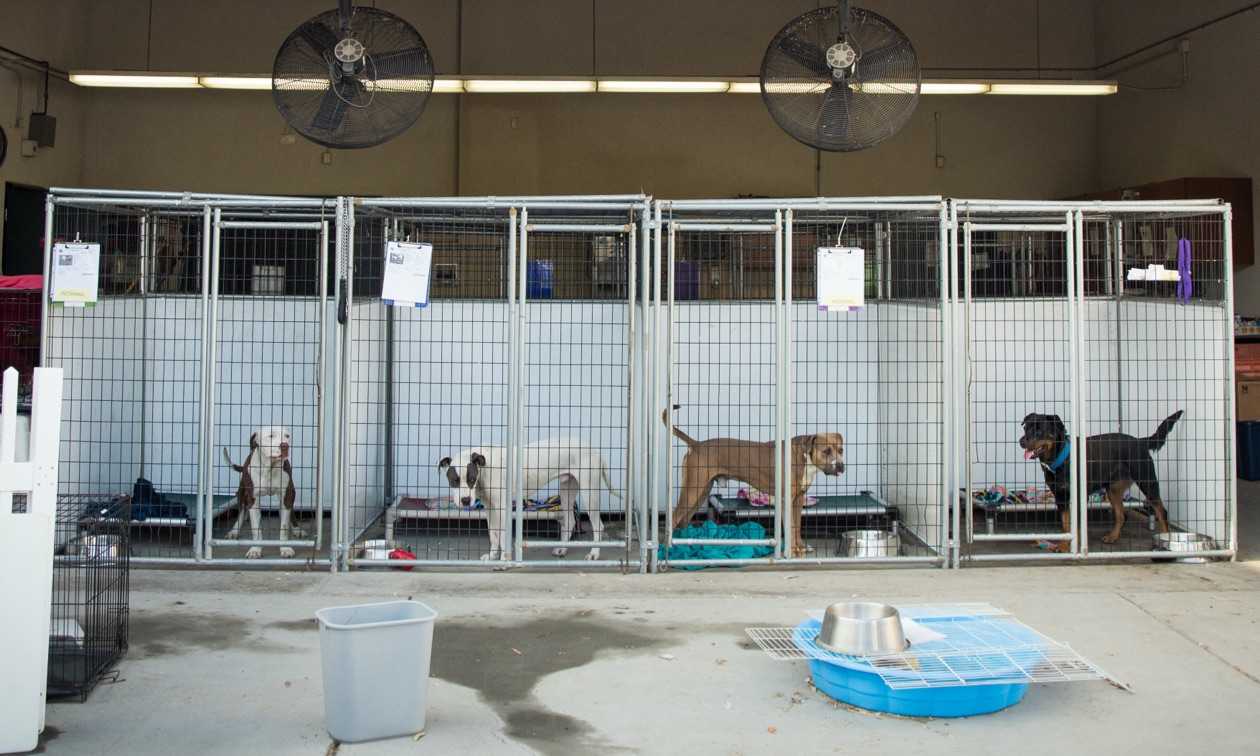When you’re planning a trip away from home, it’s important to know that your dog will be well cared for, safe, and happy. Whether your dog will be staying with a pet sitter or in a boarding facility, finding a place that has your dog’s best interest at heart will give you peace of mind while you enjoy your own vacation.
When you’re choosing a boarding facility there are a few things you should check out. You’ll also want to prepare your dog for boarding to limit their stress (especially if you’re boarding them for the first time).
Here are some dog boarding tips to help you find the right place and help your dog feel comfortable at their home away from home.
Before You Board Your Dog
Consider whether your dog has the right temperament for staying at a boarding facility. If the dogs are in daycare during the day at the facility, your dog will need to have good social skills. If your dog doesn’t enjoy the company of other dogs, look for a boarding facility that keeps the dogs separate or hire a pet sitter who can stay in your home instead.
Each dog is unique, so matching a boarding facility’s amenities with your dog’s needs will help to set them up for a successful stay. Dogs with separation anxiety need extra preparation before being boarded. Spending time at the new facility to acclimate and get to know the staff can be very helpful. Choose a facility that allows trial visits and is willing to spend the extra time needed to help your dog feel more comfortable.
Make Sure Your Dog Is up-to-Date On Their Vaccinations
Vaccinations are the most cost-effective and safest way to prevent diseases from spreading. Places where dogs are in close proximity to one another, such as a boarding facility, are at a higher risk of having an outbreak. Check your dog’s vaccination records or contact your veterinarian to make sure they are up-to-date on their vaccinations.
A reputable boarding facility will require all of their dogs to be current on the following vaccines:
- DAPP (a.k.a. DHPP) Vaccine
This combination vaccine protects dogs against Distemper, Adenovirus type 1 (hepatitis), Adenovirus type 2 (respiratory), Parainfluenza and Parvovirus. After the initial series, your dog will still need periodic boosters, with the frequency being determined by your veterinarian and based on your dog’s age. If your dog is due for a booster, it should ideally be done at least 3 weeks before their stay at a kennel to allow them to build up the best immunity prior to boarding. - Rabies Vaccine
The rabies vaccine is mandated by state laws and required every 1 or 3 years, depending on your location. - Leptospirosis Vaccine
The lepto vaccine helps protect dogs from leptospirosis. This bacterial infection can destroy the kidneys and/or liver. The vaccine is sometimes given in conjunction with the DAPP vaccine, but can also be given on its own. Yearly boosters are then necessary to ensure the best level of protection. - Bordetella (Sometimes Called Canine Kennel Cough) Vaccine
The Bordetella vaccine is very important when your dog is being boarded or attends doggie daycare. The vaccine needs to be given at least one week before their stay and boarding facilities require this vaccine to be given once a year at minimum (but some require a 6-month vaccine schedule because of the prevalence of Bordetella). - Canine Influenza Virus (Dog Flu) Vaccine
For dogs that are often around other dogs (such as at boarding kennels, dog shows, or daycare), protecting them against canine influenza (CIV) is very important. Infection rates are high for dogs that are exposed to the virus and dogs can get very sick from CIV. After the initial series, your dog should receive this vaccine every year, and it ideally needs to be completed at least 2 weeks prior to being boarded.
Make Sure Your Dog Is on Parasite Prevention Medicine
Year-round parasite prevention is important as well — you don’t want your dog bringing home any fleas or ticks or getting diseases these parasites transmit. Ensure that your dog is on a prevention program that covers them for external parasites like fleas and ticks, as well as internal parasites like heartworm and intestinal worms. A good boarding kennel will require all of the animals in their care to be on continuous parasite prevention.
What to Look For in a Boarding Facility
The best way to screen a boarding facility is to take a tour and ask about their dog boarding requirements. At a minimum, a boarding kennel should:
Have Prevention and Emergency Measures in Place, Including:
- Requiring up-to-date vaccinations and continuous parasite prevention
- Having emergency veterinary care readily available or a plan in place to get emergency care for any pets that need it
- Having a disaster plan (e.g., fires, natural disasters, etc.)
- Following standard operating procedures to minimize risk of illness outbreaks
Ensure Sanitation, Safety, and Comfort By:
- Using appropriate and effective cleaning products
- Designing kennels to prevent injury and decrease stress
- Ensure dogs are taken out for frequent walks and opportunities to pee and poop, including in evening and early morning so they don't go too long without relief
- Promptly cleaning up any pet waste
- Provide positive social interaction, mental enrichment, and enough physical exercise for the dogs in their care.
- Have qualified staff trained in proper animal care and handling.
Preparation for boarding is for you as much as it is for your dog. You want to feel assured that your pal will be well cared for during your time away and that you won't be met with unexpected requirements before boarding. Using these preparation tips can help ensure your peace of mind.
ZPC-00431R2




